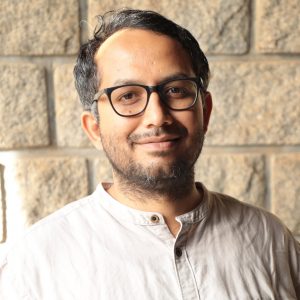Course ID: PS 645
Semester: Autumn 2023-24
Credits: 3
Instructors: Justice Uday Umesh Lalit and Dr Naveen Bharathi
The course offers an introductory exploration of affirmative action in India, encompassing various crucial aspects. It commences with an insightful overview, defining affirmative action and delving into its historical background, including pre-independence initiatives in states like Kolhapur, Travancore, Mysore, and Madras. Next, it explores the draft constitution and the Constituent Assembly’s adept handling of affirmative action matters.
Moving forward, the course delves into the Constitution’s provisions aimed at extending affirmative action, analyzing significant cases like Champakam Dorairajan and the first amendment. It further delves into crucial topics such as the Mandal Commission’s report, the landmark Indra Sawhney case, and the Constitutional amendment relating to affirmative action in promotions. Shifting the focus to the 73rd and 74th Amendments, the course illuminates how these amendments expanded affirmative action through constituency reservation for women in Panchayati Raj.
Continuing the journey, the course covers subsequent amendments and noteworthy cases, such as Nagraj, Jarnail Singh, and the reservation for economically weaker sections (EWS). To conclude, the course compares India’s approach to affirmative action with similar policies implemented in other jurisdictions, offering valuable insights into this crucial subject.

Justice Uday Umesh Lalit is a distinguished Indian jurist and the former Hon’ble Chief Justice of the Supreme Court of India. He was appointed as a judge of the Supreme Court on August 13, 2014. Prior to his elevation to the Supreme Court, Justice Lalit had an illustrious career as a senior advocate, practising primarily in the Supreme Court of India.
Throughout his legal career, Justice U. U. Lalit has handled several high-profile cases and has earned a reputation for his erudition and impartiality. He has contributed significantly to the Indian legal system and has delivered several notable judgments on various legal matters.

Dr Naveen Bharathi is an Assistant Professor at the centre specializing in political sociology and the political economy of identity in India. His work focuses on the relationship between ethnic diversity and development, with notable contributions to various media publications and peer-reviewed journals. Prior to his research career, he worked as an architect and planner in renowned firms. He holds prestigious fellowships at Harvard University and the University of Pennsylvania, adding to his multidisciplinary expertise.
| Date | Day | Time Slot | Venue |
|---|---|---|---|
| 6 October 2023 | Friday | 5:30 PM to 8:45 PM | LA 201 |
| 7 October 2023 | Saturday | 10:00 AM to 1:30 PM | LA 201 |
| 20 October 2023 | Friday | 5:30 PM to 8:45 PM | LA 201 |
| 21 October 2023 | Saturday | 10:00 AM to 1:30 PM | LA 201 |
| 3 November 2023 | Friday | 5:30 PM to 8:45 PM | LA 201 |
| 4 November 2023 | Saturday | 10:00 AM to 1:30 PM | LA 201 |
| 8 November 2023 | Wednesday | 5:30 PM to 7:00 PM | LA 201 |
| 10 November 2023 | Friday | 5:30 PM to 7:00 PM | LA 201 |
1. Can Caste and Gender Inequality be Addressed in Indian Villages?
The talk will review the evidence on various attempts to address caste and gender inequality in Gram Panchayats (constitutionally empowered village democracies) in rural India, examine the tradeoffs involved with reservations and other policies, and place it in a global context.
2. Reservations, Merit and Efficiency
The lecture will present an evidence-based analysis of the key frequently asked questions about the reservation system in India: the effect of reservations on merit and efficiency; the “mismatch hypothesis” which suggests that reservations do more harm than good; and the double stigma of reservations, which suggests that beneficiaries of reservations might be doubly stigmatised, both on account of their caste as well as on account of their reservation status.